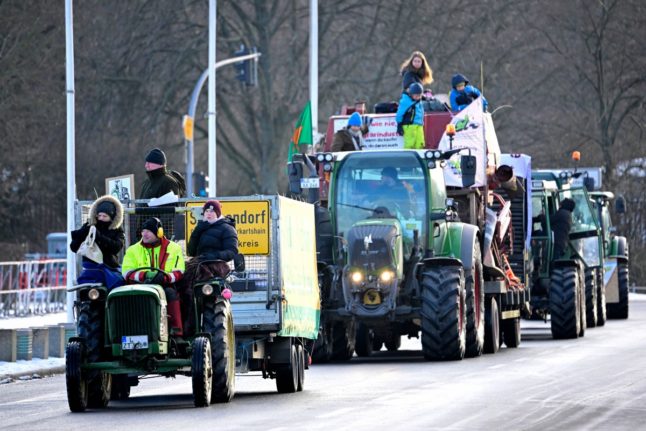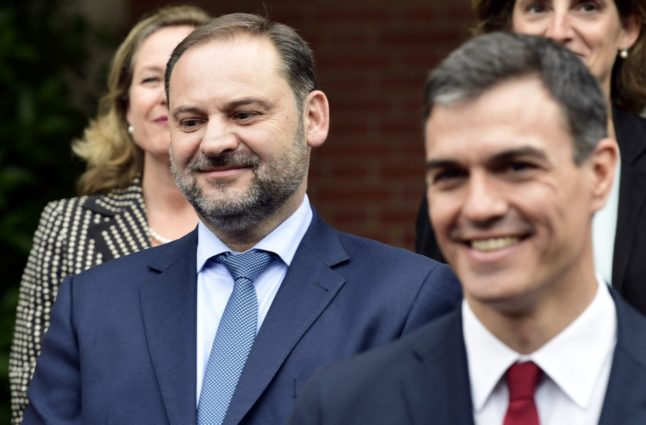On the agenda are key issues including farming incomes, sustainable agricultural practices, technological innovations and competitiveness, which will be discussed in advance by the European Union’s agriculture ministers at their meeting in Brussels on Tuesday.
The initiative was not confirmed until late last week, even though Commission President Ursula von der Leyen had promised in September to start discussions, insisting that farming and environmental protection were not mutually exclusive.
Europe has recently seen a wave of protests from farmers including huge demonstrations in Germany and roadblocks in France in which one woman died.
Here is a look at some of the grievances that have sparked discontent in various parts of the 27-nation bloc ahead of this year’s European Parliament elections.
Netherlands
Grumblings in the Dutch farming sector bubbled to the surface in June 2022, when the government unveiled plans to cut nitrogen emissions by reducing the country’s herd of four million cows by nearly a third, and possibly shut some farms.
Farmers said the move would ruin their livelihoods.
Nitrogen compounds produced by manure and fertiliser used in farming can contribute to climate change and harm natural habitats.
The move followed a 2019 Dutch court ruling that the government was not doing enough on nitrogen, and that key house building and road projects that also produced the chemical would be on hold until it did.
But farmers in the country of 18 million, which is the world’s second-largest food exporter after the United States, reacted furiously, dumping manure and rubbish on roads and blocking supermarket warehouses.
Their protests drew support from populists abroad, including former US president Donald Trump, who claimed the Dutch farmers were fighting “climate tyranny”.
Months of demonstrations triggered a wave of support at the ballot box for the recently founded BBB farmers’ party, which made a significant breakthrough in Senate elections in March 2023.
It was less successful than predicted in the general election in November last year but continues to attract support from a rural community that feels urban elites in The Hague, Amsterdam and Brussels do not understand its concerns.
Poland and Romania
In recent months, there has also been an increase in exasperation in the east of the EU, namely in Poland, Romania, Slovakia, Hungary and Bulgaria, where food producers have complained of unfair competition from cut-price cereals from Ukraine, which is not part of the bloc.
After Russia launched its invasion of Ukraine in February 2022 and blocked Ukraine from using the Black Sea to export its goods, the EU suspended customs duties on imports from Ukraine and set up corridors so Kyiv could transit its grains through the EU to world markets.
But because of logistical issues, the grain started piling up in EU countries and driving down local prices.
Tractor-riding farmers in Bulgaria and Romania jammed border crossings with Ukraine and in Poland the anger triggered the resignation of the agriculture minister in April 2023.
That did little to calm tempers and in November, Polish farmers and lorry drivers started blockading roads from Ukraine.
Farmers only suspended their protest on January 6th after the government agreed to provide subsidies.
In Romania, the rural sector staged new demonstrations on January 14th over what they said were excessively high levies.
The customs exemptions granted to Ukrainian exporters expire in June, so the European Commission will need to tell EU farmers fairly soon whether it intends to prolong them or not.
Germany
In Germany, farmers have been up in arms since early January over a government plan to roll back tax breaks on fuel for agricultural machinery and other subsidies.
On January 8th, they launched a week of nationwide rallies, blocking several city centres and major road arteries with hordes of noisy tractors, and have vowed to push on with their demands.
The coalition government of Chancellor Olaf Scholz has agreed to stagger the cuts between now and January 2026 and reduce red tape.
But it may feel unable to offer more concessions, after a court ruling forced the government to find savings in the 2024 budget.
ANALYSIS: Why are German farmers so angry?
France
Farmers in France are also cross about increases in production costs and environmental regulations.
In the autumn, they turned signposts upside down to show the world itself was “upside down”. In recent days they have been blockading dozens of major highways and a nuclear power plant. On Tuesday morning a woman died after a car tried to force its way through a barricade in Ariège, southern France.
LATEST Where in France are roads blocked by protesting farmers?
The powerful farming union FNSEA is planning other forms of protest, after a meeting with newly installed Prime Minister Gabriel Attal on Monday failed to produce a breakthrough.
Further afield
In former EU member Britain, fruit and vegetable farmers planted 49 scarecrows outside parliament on Monday to represent the 49 percent of farmers who say they are on the brink of leaving the industry due to “unfair” treatment by the country’s powerful supermarket chains.
Supermarkets are “bringing British farming to its knees”, Guy Singh-Watson, founder of the fruit and veg box delivery firm Riverford Organic, told AFP, adding that government policies failed adequately to support the sector and were rarely enforced.
And there are predictions the rural unrest could spread to other parts of the EU too.
“There is talk of protest in Italy and Spain,” said Christiane Lambert, head of Europe’s leading farmers’ union, the Committee of Professional Agricultural Organizations (COPA).



 Please whitelist us to continue reading.
Please whitelist us to continue reading.
Member comments